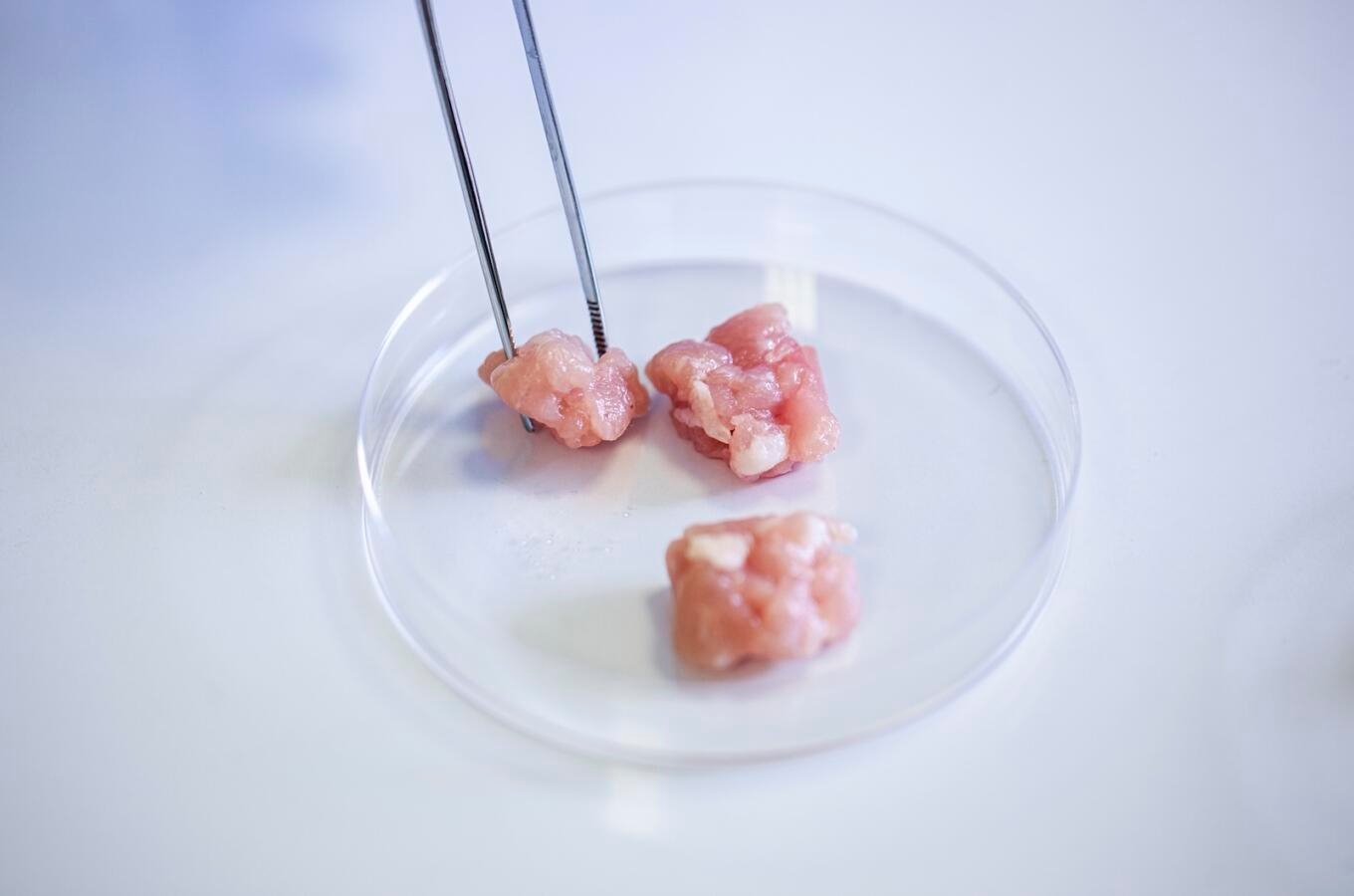Lab-grown meat — also known as cultivated meat, or cultured meat — is an alternative meat product grown from cultured animal cells that are propagated in a laboratory, creating a food that is molecularly identical to normal meat but didn’t grow inside an animal. Advocates believe it provides a viable alternative to natural meat that is more environmentally friendly and ethically sound, since it obviates the need to raise and slaughter an animal.
From the perspective of Jewish law, lab-grown meat poses several novel questions, most obviously if it’s kosher. The short answer is yes, but the details are a bit more complex.
What is Cultivated Meat?
Cultivated meat is meat produced from cells harvested from an animal that are then replicated under controlled laboratory conditions. Once the cells have reached a certain size and density, they are harvested, blended with additives and sold to consumers. The process requires no farmland, no animals and no slaughtering. Many believe cultivated meat will help satisfy growing global demand for animal protein in a more environmentally sustainable way, since it eliminates the need for vast tracts of land to be given over to meat production and the ethically and ecologically problematic practice of raising animals in confined feeding facilities. It also addresses ethical concerns about the treatment of animals in industrial-scale meat production.
The first cultivated beef patty was produced in 2013, and Singapore became the first country to approve it for sale. As of early 2024, a small number of producers have been approved for commercial sale in the United States, but the product is not yet widely available.

Help us keep Jewish knowledge accessible to millions of people around the world.
Your donation to My Jewish Learning fuels endless journeys of Jewish discovery. With your help, My Jewish Learning can continue to provide nonstop opportunities for learning, connection and growth.
Is It Kosher?
In a word, yes, but the specifics matter.
For one, the animal from which the cells are harvested must be a kosher animal. Cultured pork would not be considered kosher, even though the meat didn’t grow inside a pig, because the original cells came from a unkosher animal.
The next consideration is the method of extracting the cells from which the cultivated meat will be grown. The most common method is taking them from a living animal. Some Jewish law authorities believe this renders the final product unkosher because Jewish law bars eating meat that is taken from a living animal, a prohibition known as ever min hachai. The Orthodox Union, the largest kosher meat supervising agency in the world, has taken this position, but other authorities disagree. The Conservative movement, in a paper adopted in 2017, argues that culturing tissue from a living animal is acceptable for four reasons: The quantity of cultured cells is tiny, the original cells are present in only trace amounts in the final product, the descendent cells are grown outside the animal’s body, and the final eaten cells may be sufficiently transformed in the course of production as to render them distinct from the originals.
In 2023, the OU gave its first kosher certification for cultured meat to an Israeli startup that solved the extraction problem by culturing cells from a fertilized chicken egg. Since eggs are kosher, the resulting meat is considered kosher. Another Israeli company, Aleph Farms, produces beef cultured from a fertilized cow egg and is pursuing kosher certification.
Is It Meat?
The other central question posed by synthetic meat is whether Jewish law considers it actual meat. This matters for Jews who observe laws about eating meat and dairy products together. If Jewish law doesn’t consider cultivated beef to be meat, then it should be permitted to eat it with cheese.
Rabbis are divided on this question. In 2022, the Israeli daily Israel Hayom reported that a handful of Israeli rabbis had ruled that since fertilized chicken eggs and pre-embryonic cow cells are not considered meat, the meat products derived from them in a laboratory should not be considered meat either. As a result, there’s no reason why they shouldn’t be eaten with dairy. “Despite the end product’s external similarity to meat products, it is no different in essence to the plant-based meat substitutes on the market,” the rabbis said.
Israeli Chief Rabbi David Lau also endorsed this position, ruling that meat produced by Aleph Farms is pareve — that is, neither meat nor dairy — and can therefore be eaten with dairy products. However Lau introduced an important caveat, determining that this is so only if the product is not marketed as “meat” and is not made to look and taste like regular meat. Lau’s qualifications are rooted in the concern for marit ayin, a rabbinic principle which calls for one to avoid even the appearance of violating the law.
American rabbis have taken a more stringent view of this question. The OU has determined that cultured meat should be considered meat, as did the Conservative movement’s 2017 paper, which cited both marit ayin and the fear that kosher consumers might grow confused and wind up mixing actual meat with dairy. It also argued that in cases of doubt regarding a biblical prohibition (the ban on eating dairy and meat together derives directly from the Bible), the practice is to take a stringent approach.



